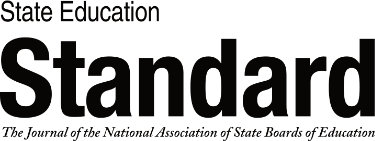One of the many things the pandemic has illuminated is where schools get stuck. For more than a year, millions of children attended school remotely, and yet the quality of that instruction remained hostage to the capacities of geographically determined school districts.
For me, this period has brought back thoughts of Education Unbound, which I penned more than a decade ago. The book sketched a vision of what I call “greenfield schooling.” The premise is simple: Profound educational improvement requires more than fine-tuning systems that have evolved over two centuries; it requires policymakers and educational leaders to revisit organizing assumptions about the grammar of schooling.
The Greenfield Path to School Improvement
Also In this Issue
Reshaping Assessment and Accountability in 2021 and Beyond
By Bonnie O'Keefe, Andrew Rotherham and Jennifer O'Neal SchiessData about system performance will continue to lie at the heart of school improvement.
The Role of Technology in Reimagining School
By Kristen Amundson and Andrew KoPandemic or no, states ought to press for better technology for personalized learning and making staff and students safer.
The Greenfield Path to School Improvement
By Frederick HessState Policymakers can help clear away the rubble that impedes vibrant reform.
Transforming Learning through Competency-Based Education
By Susan PatrickStates are adopting a range of policies to personalize student learning and move away from seat-time rules.
Seize the Moment: Double Down on Authentic Learning
By Monica Martinez and Dennis McGrathProject-based learning tied to students' communities and interests readily makes the leap across modes of instruction.
Moving toward Competency-Based Professional Learning
By Melissa Tooley and Joseph HoodMicrocredentials embedded in effective learning systems can promote teacher growth, advancement, and retention.
Kansas Schools Build Resilience amid Redesign
By Valerie NorvilleSchools opt to change their approaches to learning and see gains in adaptability.









 i
i
 i
i
 i
i